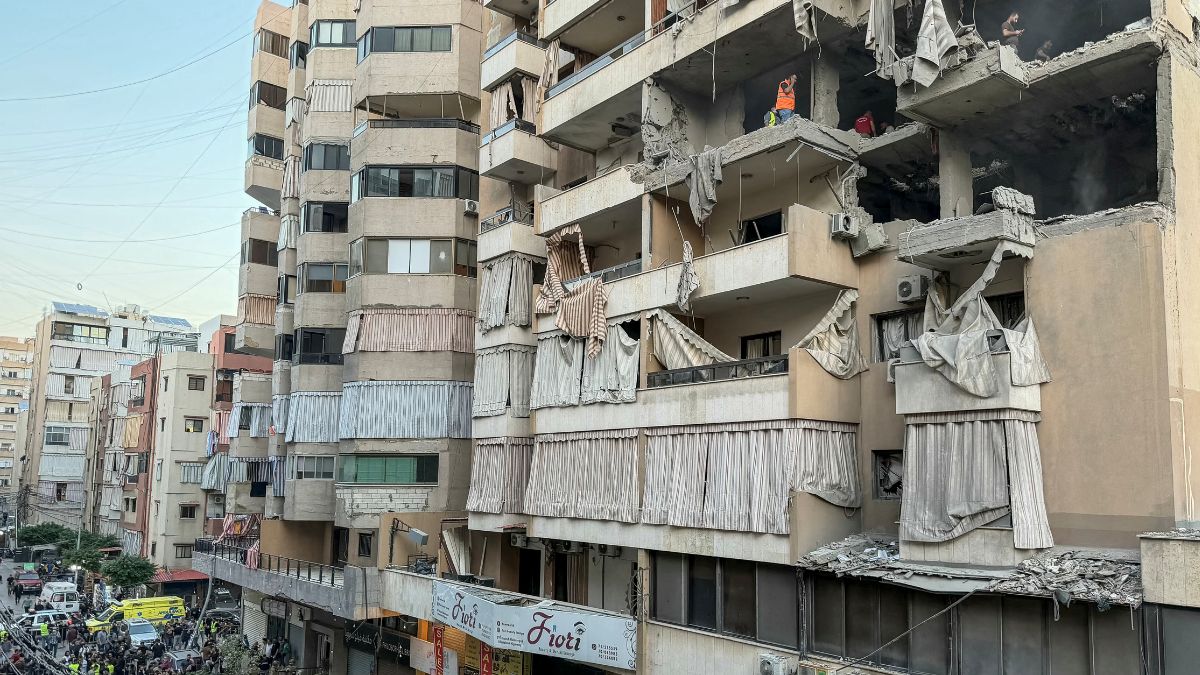Hezbollah top military commander Haytham Ali Tabatabai was killed in an Israeli air strike on Lebanon’s capital on Sunday, confirmed the group. Tabatabai, chief of staff of the group’s armed wing, was among at least five people killed in the attack on an apartment block in the Hezbollah stronghold of Dahiyeh in southern Beirut. Lebanon’s Health Ministry confirmed that the strike killed five people and injured at least 28 others.
In a statement, Hezbollah described Tabatabai as “the great commander” and said he was killed in “a treacherous Israeli attack on the Haret Hreik area in the southern suburbs of Beirut”, without specifying his position within the group.
Tabatabai, born in 1968 in Beirut to a Lebanese mother and an Iranian father, grew up in southern Lebanon and joined Hezbollah at the age of 12. He is the most senior Hezbollah commander to be killed by Israel since the start of a November 2024 ceasefire intended to end over a year of hostilities between the two sides.
The Israeli military confirmed it “eliminated” Tabatabai in the strike, while Israeli Prime Minister Benjamin Netanyahu’s office earlier said he was the target. Israeli media reported it was the military’s third attempt to kill him since last year’s war.
Senior Hezbollah official Mahmoud Qmati warned that Israel’s strike crossed a “red line” and said the group’s leadership was considering a response. “The strike on the southern suburbs today opens the door to an escalation of assaults all over Lebanon,” he said.
Lebanon’s Ministry of Public Health reported that 28 people were wounded in the strike. The country’s official National News Agency (NNA) said two missiles were fired at the apartment building on al-Arid Street in Haret Hreik, causing significant damage to surrounding buildings and vehicles.
Quick Reads
View AllEscalation fears and international concerns
There is growing concern in Lebanon that Israel, “which has been acting with impunity, will increase its strikes,” Al Jazeera reported. Analysts note Hezbollah faces a difficult choice, as failure to respond could invite further attacks, while retaliation could trigger a larger Israeli bombardment.
Ali Rizk, a security affairs analyst, told Al Jazeera that Hezbollah is unlikely to give Netanyahu an excuse to launch an all-out war against Lebanon, which could be politically advantageous for the Israeli leader but very costly for Lebanon.
Lebanese President Joseph Aoun urged the international community to intervene to halt Israeli attacks. In a statement on Sunday, he said Lebanon “reiterates its call to the international community to assume its responsibility and intervene firmly and seriously to stop the attacks on Lebanon and its people.”
Pope Leo XIV visit
Sunday’s strike comes days before Pope Leo XIV is scheduled to visit Lebanon amid heightened Israeli aggression in recent weeks. Hezbollah MP Ali Ammar condemned Israel, stating that “every attack on Lebanon is a crossing of a red line, and this aggression is inherent in the entity that targets Lebanon’s dignity, sovereignty, and the security of its citizens.”
Israel has carried out near-daily strikes on southern Lebanon and has occasionally hit Beirut, which had not been targeted for several months. Earlier this week, at least 13 people were killed in an Israeli air strike on a Palestinian refugee camp in southern Lebanon. A drone attack also hit a car in the car park of a mosque in the Ein el-Hilweh refugee camp on the outskirts of Sidon, the NNA reported.
Israel and the United States have pressured Lebanon to disarm Hezbollah. The Lebanese military issued a government-approved plan in September to disarm Hezbollah nationwide by year-end, which the group has refused to comply with. Israel claims Hezbollah is rebuilding its military capabilities in southern Lebanon, a charge denied by the Lebanese government.
)